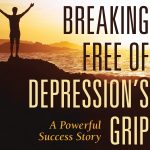Chai Harjo’s second book is a refreshing read and will leave you feeling truly positive and encouraged to stay the course on your own goals. In this blog, not only do you get a glimpse into the preface and Chai’s inspiration behind the book, you also get a sneak peek at what he’s working on next. It’s a two-parter we decided to keep as one post. We hope you enjoy.
“We all have goals. Whether they relate to our lives, our families, our work, or our passion, we have goals that we want to achieve . . . Sometimes, however, a goal can get derailed. Maybe there are people who doubt your ability to achieve your objectives. Or, perhaps, there is a voice inside your own head that conveys hesitance and makes you doubt yourself and the goals which you’ve established. This book is not only about setting goals, particularly in the real estate investment world, but, more importantly, it is about believing in those goals . . ,” shares author Chai Harjo in the preface of his second book, Down-to-Earth Canadian Real Estate Success – Believing in Yourself and Achieving Your Goals.
He continues, “Part anecdote, part matter-of-fact investing guide, and part inspirational text, this book is meant for you to turn to when your own belief  falters. Questioning yourself is natural. We often start out with big dreams, grand plans, and limitless aspirations. This is a good thing. But once you get right down to it, once you’re in the trenches of real estate (or really of anything), you may start to wonder: did I make the right decision? What if I fail? What if this goes disastrously bad? This is when your belief may waver. We’ve all been there . . . Read the stories of those who’ve questioned their investing goals and yet managed to hold onto their belief and their ability to see it through . . . how they came out on top, and about how, when they came up against obstacles, they kept on going.”
falters. Questioning yourself is natural. We often start out with big dreams, grand plans, and limitless aspirations. This is a good thing. But once you get right down to it, once you’re in the trenches of real estate (or really of anything), you may start to wonder: did I make the right decision? What if I fail? What if this goes disastrously bad? This is when your belief may waver. We’ve all been there . . . Read the stories of those who’ve questioned their investing goals and yet managed to hold onto their belief and their ability to see it through . . . how they came out on top, and about how, when they came up against obstacles, they kept on going.”
Check out my short, written interview with Chai followed by some wise tidbits he imparts about book number three in the works.
What inspired you to write this book?
My goal was to be able to share my real-life experiences in investing. There are a ton of books that will give you formulas and generic examples—but what I hoped to accomplish was to give readers raw and honest insights into what I went through, how I built my portfolio, and what they too can expect when jumping into the world of real estate investing.
What do you want others to gain from your book?
Again, I am going for a totally candid approach when telling the story of my real estate journey. Hopefully, the reader will take much of this to heart and consequently learn from some of the mistakes I made along the way. This way too, they can jumpstart their own process.
What was your creative process for this project?
I kept a journal throughout. I recorded observations, anecdotes, conversations—pretty much anything that I could think of that would enable me to then reflect on my overall experiences and polish them into a finished manuscript. Additionally, I spoke to a number of friends and associates. Their insights were hugely helpful in terms of writing this book.
Why did you choose the story-telling format you used?
Versus simply telling readers or lecturing to them, I wanted to create a more intimate connection with my audience. So. this is not your typical investment book. This is not a traditional self-help guide. Included are true stories intermingled with my insights and lessons learned along the way.
What’s next for you as an author?
I am currently in the process of penning my third book. This is also about real estate investing, however, with a huge twist. While I don’t want to give too much away, I will say that our world has changed—substantially. As an investor, I had to pivot right along with it. And in this third book I chronicle the details of that pivot.
Here are just a few hints about Chai’s third book in his own words:
 This third book is a bit of a divergence from the previous two. While certainly I support the advice and lessons I convey in my earlier books, COVID-19 has dramatically changed the face of the entire world. Real estate was especially impacted by the pandemic. And I know many real estate investors who suffered tremendous losses, whether from rents that couldn’t be paid, deals that suddenly fell through during the peak of the crisis, or the fact that they lost their own full-time jobs and had to liquidate properties in order to survive. No one could have seen this coming, and yet, at the same time it is imperative that the unexpected doesn’t destroy you. This is the underlying message in my latest book: surviving during the unfathomable. Making a go of it when all signs point to the fact that you should be dead in the water.
This third book is a bit of a divergence from the previous two. While certainly I support the advice and lessons I convey in my earlier books, COVID-19 has dramatically changed the face of the entire world. Real estate was especially impacted by the pandemic. And I know many real estate investors who suffered tremendous losses, whether from rents that couldn’t be paid, deals that suddenly fell through during the peak of the crisis, or the fact that they lost their own full-time jobs and had to liquidate properties in order to survive. No one could have seen this coming, and yet, at the same time it is imperative that the unexpected doesn’t destroy you. This is the underlying message in my latest book: surviving during the unfathomable. Making a go of it when all signs point to the fact that you should be dead in the water.
I had a profitable and sustainable long-term rental business. I had built up a portfolio of more than a dozen properties. This was my direction—this was, for all intents and purposes, exactly what I wanted to establish for my family’s present and future economic stability.
And I am not saying that it was all undone because of the coronavirus, but some changes needed to be made. I had to pivot, and I had to pivot fast in light of new regulations, the new normal as it’s often referred to. Many of my long-term rentals are still occupied by tenants able and willing to pay their rent, and for that I am thankful. However, with some properties, the sailing wasn’t quite as smooth. And in this third book, I take an in-depth look at what I needed to do in order to create a more viable and sustainable venture moving forward in the wake of a pandemic.
Ultimately, I began building a short-term rental business. Looking at the data available to me, understanding that while people couldn’t necessarily travel far or attend concerts and festivals or do those things that were normal in a pre-COVID world, I saw a niche that I could capitalize on. People still wanted something to do. They still wanted some form of getting away from it all. The Airbnb sector was hot, as was the vacation rental booking platform (VRBO) in general. This was precisely where I saw an opportunity, and I decided to go for it.
That’s the thing about what the world experienced. It all came so quickly, so unexpectedly. You had no time to just sit back and think things through. It has been about action and execution. And so, my wife and I have since converted three of our long-term rental properties into Airbnb properties. The results: most definitely welcomed.
In this book, I not only look at the trajectory of the virus in depth and how it has impacted the Canadian economy and Canadian real estate world, but I also offer a more personal (and yes, sometimes comical) look into our own experiences transitioning to short-term vacation properties. From contending with a police raid on one of our homes as they ransacked the place trying to apprehend a drug dealer to coping daily with an incensed neighbour who turned us in on a whim because he thought we were violating COVID-19 regulations, I detail the ups and downs of what being an Airbnb host involves.
My wife offers her own insights as she and her team are handling more of the on-site operations. We give you practical insights so that if you are an investor looking to pivot to short-term rentals amid a tough economy, you do have the tools and advice to help you. We also give you glimpses into what we learned from some of our mistakes and missteps along the way.
In my first two books, I talk about business building, team building, about how to navigate being a good landlord if you are new to the field. And while all those lessons still hold true to some extent, you have to remember that we are now dealing with a brand-new playing field. The pandemic has changed absolutely everything. And so yes, some of my perspectives have shifted—though the lessons from the first two books are still applicable, they just made need to be tweaked a bit in applying them to a new business model, readymade for a post pandemic world.
Chai and his wife, Lenny, are devoted parents to three young children and tremendously positive and hardworking individuals. Like them, we are stronger together when we help others where we can, take care of our own families, and contribute to the Canadian economy in a positive way if we have the means and opportunity to do so.
Thanks as always for following the work we do at I C Publishing. You can find Chai’s new book here in the ICBookstore.ca.
Take good care,
Sheri
Sheri Andrunyk ©2020, Publisher, Senior Writer, Mentor, Author
Founder of the Hearts Linked by Courage Project
I C Publishing & Consulting / I C Bookstore
Committed to Quality Content, Design, and Platform
Bridging the gap between self and traditional publishing





Recent Comments